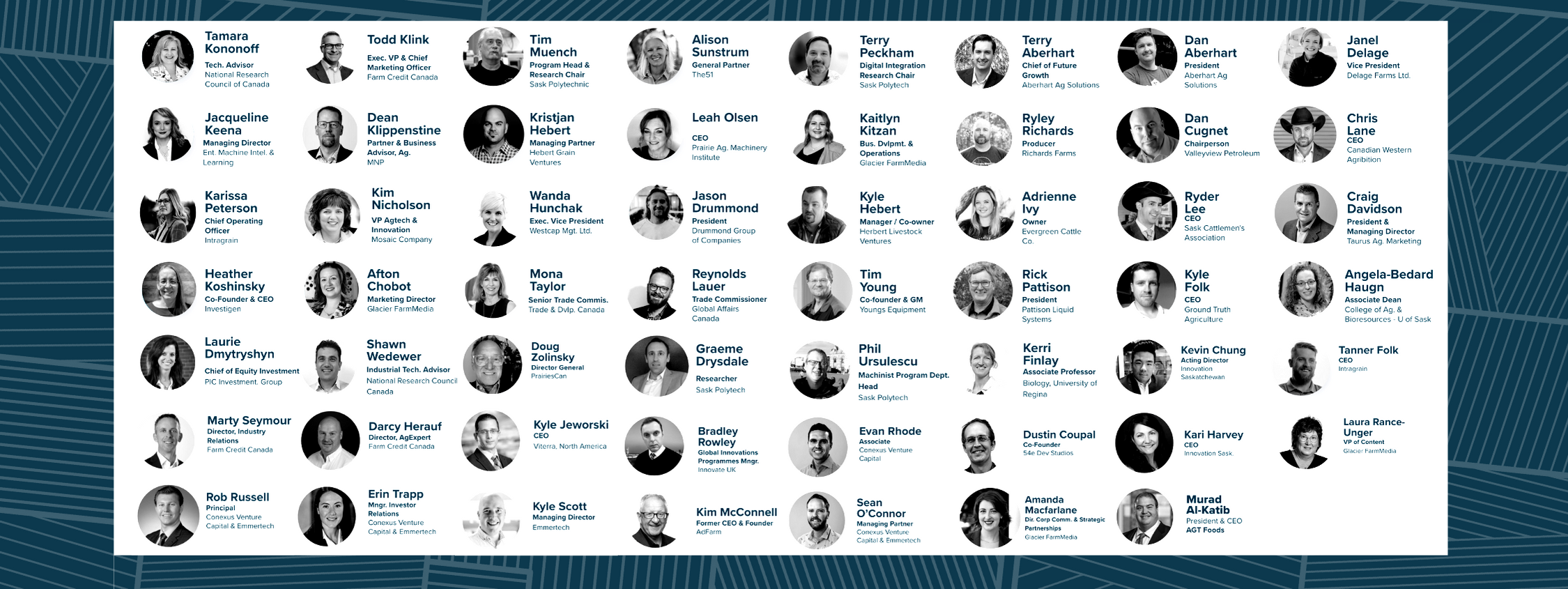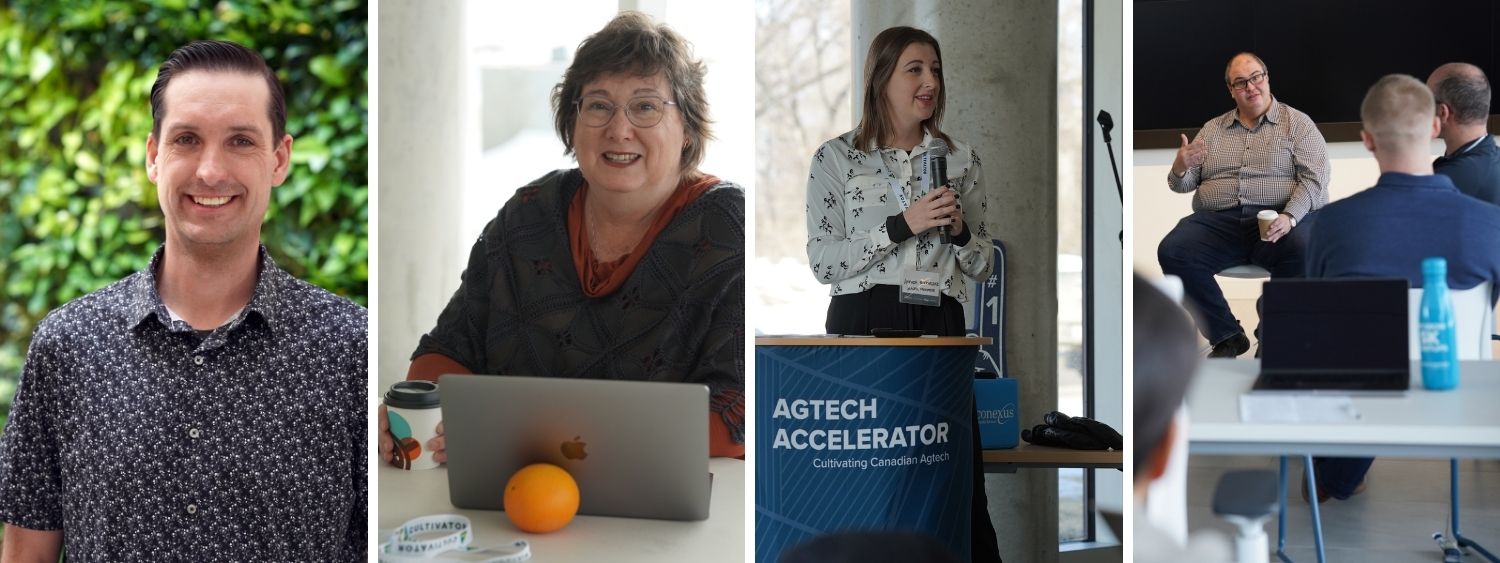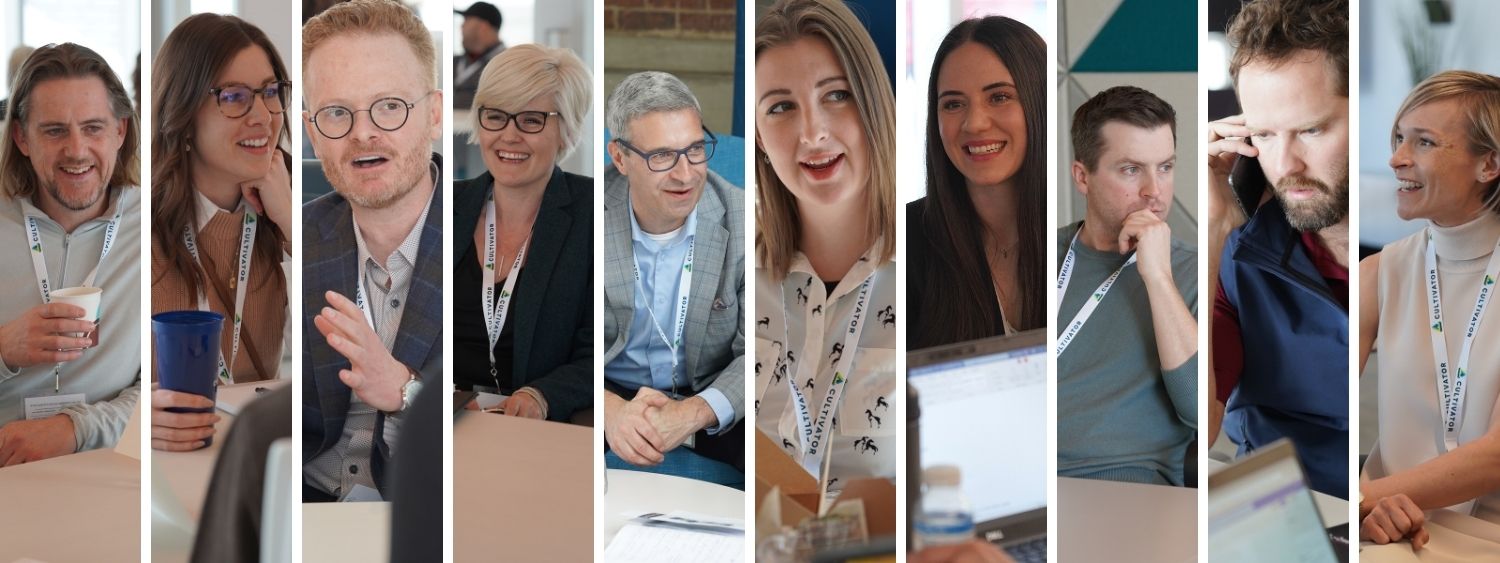‘March Madness’ turned ‘Mentor Madness’ at the Agtech Accelerator
The market for mentorship was at a premium during the Agtech Accelerator kick-off week. Over the course of 5 days (March 14-18), Cohort 1 founders from across Canada and the United Kingdom formed connections with a wide variety of mentors. The Cultivator team took extra care and thoughtfully selected a stacked lineup of mentors across all disciplines and industries…

The mission of the Agtech Accelerator is to ensure founders are properly equipped to take their agtech startup to the next level. Through mentorship, the founders are able to develop and sharpen their skills, as well as gain access to a broader ecosystem of industry connections. However, these 1:1 meetings with mentors are not always easy, founders are challenged and pushed to look at their companies from a different perspective. Goals and growth are all products of the Agtech Accelerator mentorship network. As founders enter the next few weeks of programming, they will have the opportunity to revisit some of these relationships on a deeper level as they take enormous strides to scale their business.

On day one, founders were paired up for private sessions with a lineup of incredible leaders at Mosaic Stadium. The 1:1 meetings were facilitated in the ‘Thrive Wealth Suites’ in 30-minute intervals. Between 1:1 meetings, the founders had mixed group sessions with Marty Seymour (Director – Industry Relations at Farm Credit Canada) and Darcy Herauf (Director – AgExpert at Farm Credit Canada), in addition to an interactive session led by Kyle Jeworski (CEO of Viterra, North America).
Marty and Darcy focused on 3 chapters of thought through their presentation… trust… solid/simple practices… and marketing/tradeshows. In a short time frame, these experts from FCC were able to connect with founders and work through some of their biggest challenges. They noted that agtech startups focused on hardware, face the challenge of acquiring enough capital as their projects are very expensive to fund, whereas, on another hand, software-based startups have the ability to pivot quickly and follow different trends. This will be something to watch in the coming weeks as we get to know our founders and their companies in more detail.
Kyle Jeworski shared his rollercoaster journey from a university co-op student to present-day CEO of a top global agribusiness. Kyle detailed the lessons learned after initially taking the company public and rethinking what it would mean to now manage a publicly-traded company. “Watching every penny for many years” led Kyle to apply lessons from the harder times in the past to help the company prosper in the good times. Kyle warned founders “not to spread themselves too thin” and “focus on your own founder strengths and business core.”

For days two and three of mentorship, we had the pleasure of hosting another expert lineup of renowned mentors for founders to engage in 1:1 sessions. This format was compared to a ‘speed dating’ method that had founders moving between tables and adapting to new advice/style of leadership at each meeting. ‘Mentorship Madness’ has always been a key aspect of Cultivator programming. These intensive sessions throughout the week are geared to expose founders to a new group of professionals and gain targeted advice on a certain area of focus for the founder. Founders spent 1:1 time with mentors; allowing for organic collaboration as advice, guidance, motivation, and support were exchanged across the table.

Day four was tailored to industry-specific mentors. We had the best in the biz join us at the Cultivator HQ for an intense ‘war room’ style debate that had founders conversing directly with experts that live and breathe agriculture daily. There were spirited dialogues that made founders think deeply about who their customer is, what their goals are, and how they are going to solve problems for the producers sitting in front of them. Each room was tailored to a specific industry and founders were selected to attend a room based on their company focus and opportunity for connection.
Outside of the formal mentorship sessions, founders were able to engage through conversational ‘fireside chats’ and formal speaker sessions. These guests to the Accelerator made a swift impact on founders as they shared their personal/business experiences with the group and provided increased support behind the scenes with follow-up questions and agricultural insights.

Sean O’Connor (Managing Partner of Conexus Venture Capital and Emmertech) and Kyle Scott (Managing Director of Emmertech) presented their ‘VC Math’ covering the ins and outs of what investors are looking for, evaluating deals, and the ‘VC fund model’. This set up the groundwork for founders as they strategize for raising capital in the future or reevaluate their current methods.
We had the pleasure of welcoming Kim Nicholson, VP of Agtech + Innovation at Mosaic Company (also an advisory member of the Agtech Accelerator) share her career experience of working in the global market and collaborating with the next wave of innovative agtech companies.
Terry Aberhardt did a deep dive into his experience growing up on a farm and now leading all operations. This was a very interesting discussion as founders could see firsthand how their companies could make an impact on producers such as Terry.
Laura Rance-Unger (VP of Content at Glacier FarmMedia) and Amanda Macfarlane (Dir. Corp Comm. & Strategic Partnerships at Glacier FarmMedia) focused their sessions on the role that media relations and communications play in business, specifically in the agriculture industry. With years of experience in media, Laura and Amanda brought unfiltered advice to handling media and using it authentically to share the company’s story.
For many founders, it was their first time hearing Murad Al-Katib (CEO and President of AGT Foods) share his incredible story of becoming a first-generation immigrant to Canada and his journey of realizing the success of pulse grains in Saskatchewan. Murad was candid about his experiences shared intimate details with founders on what it took to become a successful entrepreneur in the agrifood world.

The feedback through these 1:1 sessions and exposure to skilled guest speakers was insatiable! Founders were quick to latch onto these relationships and soak up as much of the mentors’ expertise as possible. Moving forward in the Agtech Accelerator programming, founders will have the opportunity to learn more from these mentors and explore the connections that were made during the kick-off week.